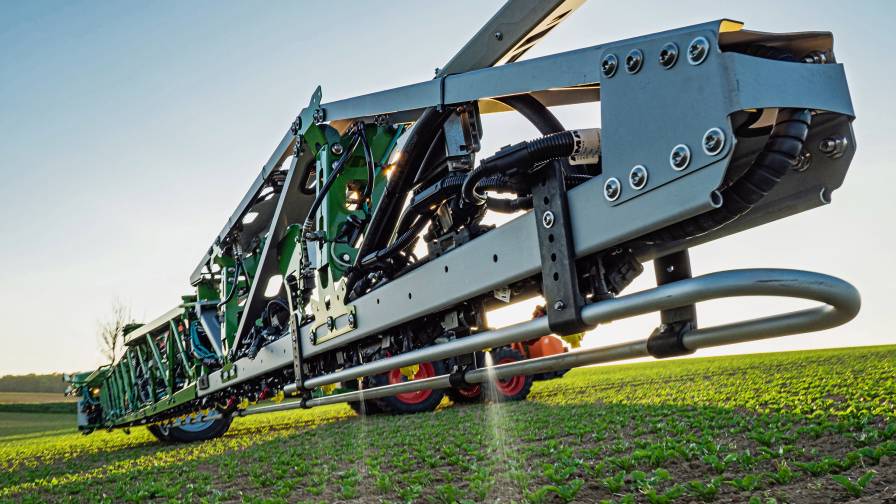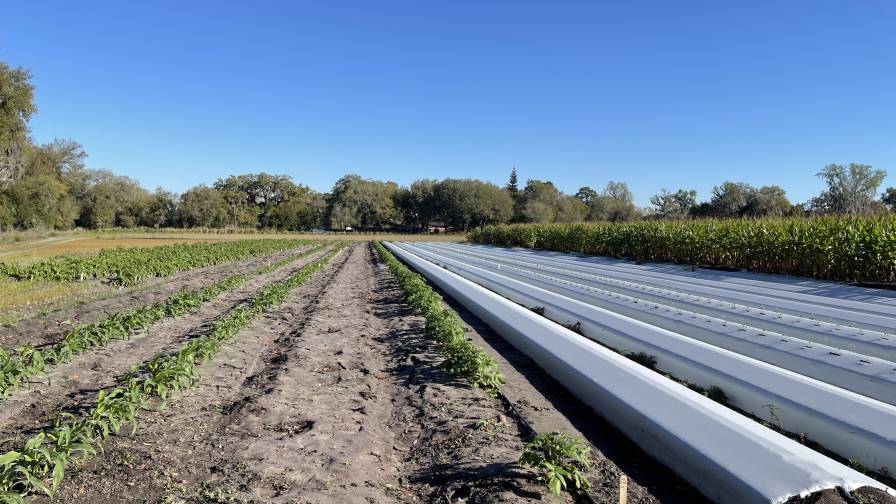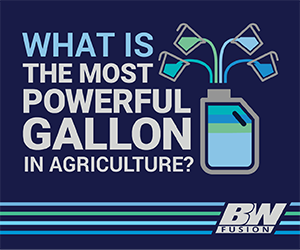Strong Pipeline of BASF Agricultural Innovations Will Benefit Food Security, Climate and Environment
BASF has announced its 10-year outlook on agricultural innovations that support food security for future generations, while minimizing the impact of farming on the climate and the environment. The company focuses on improving agricultural outcomes in major crops, like wheat, canola, soybean, corn, cotton, rice, as well as fruits and vegetables. According to estimates from the Food and Agriculture Organization of the United Nations (FAO), these crops account for more than 50% of the world’s farmland, which is why innovations applied on such a large scale have the potential to make farming even more productive and sustainable.
Within these major crops, BASF continues to innovate across its pipeline of seeds and traits, seed treatment, biological and chemical crop protection, as well as digital farming solutions and will launch major pipeline projects across all business areas over the next decade. The value of the innovation pipeline is strong, with an estimated peak sales potential of more than €7.5 billion. The importance of BASF’s products and solutions to society is growing, as the company systematically incorporates sustainability criteria into its agricultural research. In 2021, it spent about €900 million in R&D in the Agricultural Solutions segment, representing around 11% of the segment’s sales. In 2022, BASF will continue to invest in research and development of agricultural innovations at a high level.
While focusing on selected crop systems in key regions, the company tailors its products, technologies and services to help farmers grow their crops optimally even in challenging environmental conditions. “Innovation in agriculture is essential to enable sustainable food production. We need to find the right balance for better yield – yield produced in ways that meet the demands of future generations, has minimal impact on the environment and helps farmers make a living,” said Dr. Livio Tedeschi, President of BASF Agricultural Solutions. “Our innovations enable both more productive and more sustainable farming – key levers identified by the United Nations and incorporated in their Sustainable Development Goals. At BASF Agricultural Solutions, we made this a priority and committed to clear and measurable targets to boost sustainable agriculture by 2030.”
“Over the past decade, we have developed a broad portfolio that leverages all technologies needed for a more sustainable future of agriculture,” said Dr. Peter Eckes, President R&D and Regulatory of BASF Agricultural Solutions. “As a trusted and reliable innovation partner, our research for agricultural solutions reflects a long-term strategy that gives farmers stability in a changing world and allows them to increase yield and reduce the impact of farming on natural resources.”
Precision Application and Efficient Land Use Through a Diverse, Tailored Soybean Innovation Pipeline for North American Farmers
BASF is developing and connecting innovations across seed, crop protection and digital solutions, tailored to the needs of North American farmers. According to the Plant Health Initiative, Soybean Cyst Nematode (SCN) is the leading cause of soybean yield loss in North America. In the U.S., SCN contributes to an estimated $1.5 billion in economic losses for soybean fields each year. Soybean farmers will benefit from a BASF novel trait in development for tolerance to nematodes. The Nematode Resistant Soybean (NRS) trait represents the next step in soybean seed innovation, helping to minimize the impact of the pest on yield loss. This new NRS trait technology can help soybean farmers protect their seed and their yields to get the most out of every acre.

Smart Spraying reduces the risk of weed resistance by using specifically developed herbicide formulations and optimized rates, ensuring that herbicide is applied only where and when needed.
To control weeds with precision inputs, BASF together with Bosch developed the Smart Spraying solution that combines xarvio’s agronomic intelligence with Bosch’s high-tech camera sensor technology and software. The technology offers real-time, automated pre- and post-emergence weed identification and management. Smart Spraying reduces the risk of weed resistance by using specifically developed herbicide formulations and optimized rates, ensuring that herbicide is applied only where and when needed. Through spot application, it can reduce herbicide volume use by up to 70%, depending on prevailing field conditions and weed pressure. The Smart Spraying solution is expected to launch in North America, Brazil and Europe within the next 18 months.
“BASF strives to make a positive impact on our customers, environment and society by applying our knowledge, our passion, and a collaborative approach to help farmers achieve a better and more sustainable yield,” said Paul Rea, Senior Vice President, BASF Agricultural Solutions North America. “Tools and technology such as the NRS trait and Smart Spraying solution are necessary to help achieve this goal.”





